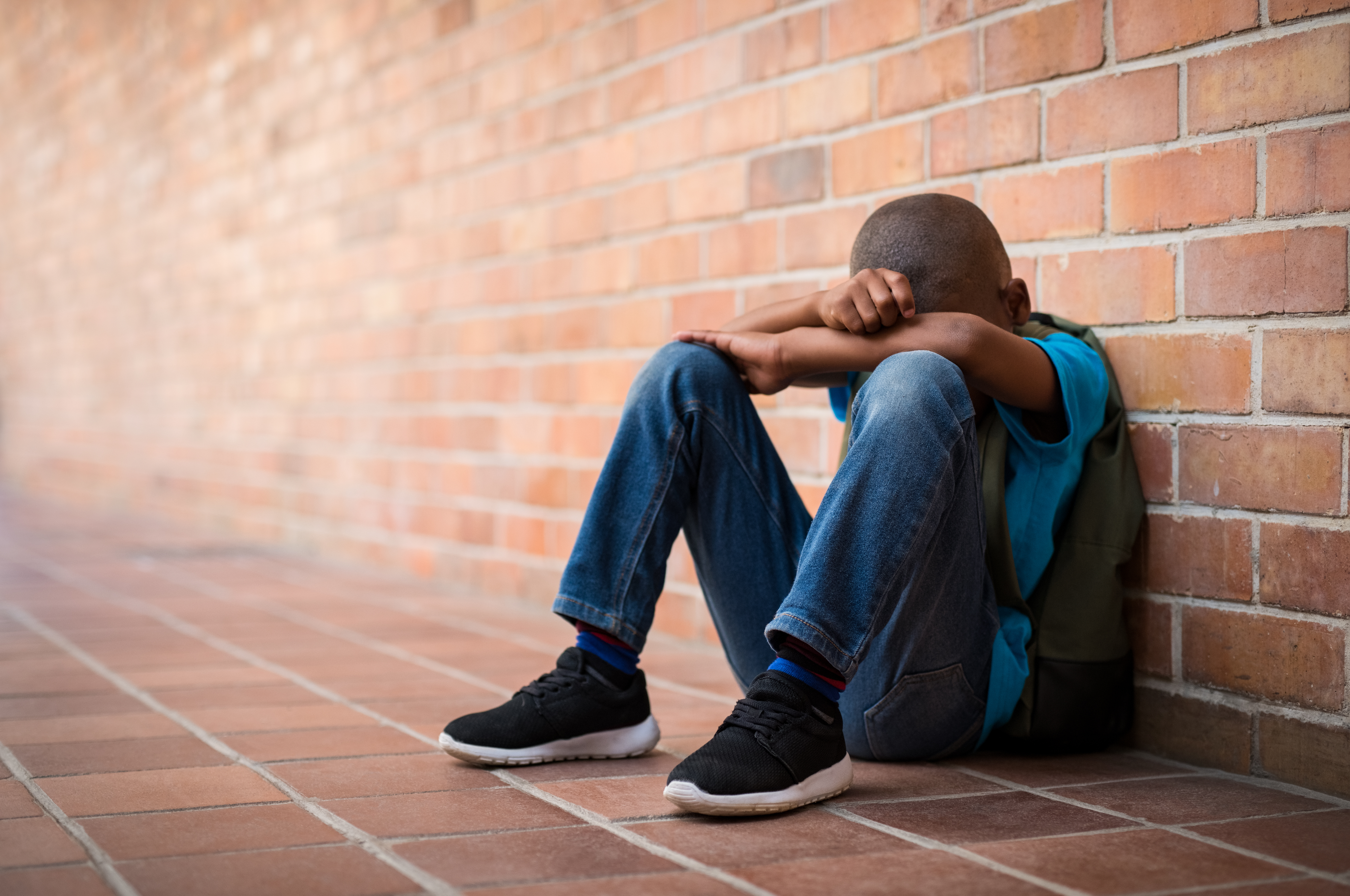Is My Child Depressed?
For any parent, seeing your child’s mood deteriorate over time can become a real source of worry and concern. Watching a young person who once had zeal and passion, now struggle to get out of bed can be deeply upsetting. Unfortunately children are not immune from experiencing depression and for many young people, it has already become the dark cloud that follows them each day. But what is depression? And how do you know that your child is struggling with it?
What are the symptoms of depression in children?
Depression in children and young people can look different than it typically does in adults. It’s important to take care in monitoring and observing your child’s behaviour over time so as to not jump to conclusions too quickly. Lots of these symptoms are a very normal part of childhood. However if you see a combination of these symptoms in your child beginning to cause them distress, impacting their daily life and persisting for atleast two weeks, it may be they are struggling with depression. Here are some of the signs to look out for:
Emotional signs:
-
Persistent sadness or low mood: this is a sadness that your child may be unable to identify but that they also can’t seem to get rid of. This can look like crying or tearing up more than usual.
-
Irritability: in children this is a much more common symptom of depression where a child appears often agitated and seemingly more sensitive than usual.
-
Increased anger: you may find they are more easily frustrated by things or show more aggression in their responses.
-
Feeling of numbness: for many children experiencing depression they describe a feeling of numbness where they lack emotion and almost feel nothing.
Psychological signs:
- Difficulty concentrating: your child might struggle to focus on tasks or keep their attention on something, this can also look like forgetfulness or the inability to retain information.
- Low self-esteem: they might begin to lack confidence in who they are or what they are able to do. This can also show itself as feelings of worthlessness, inadequacy and guilt.
- Hopelessness: they may also lack hope for the future and feel helpless to be able to do anything to change their situation.
- Thoughts of self harm: they may express beginning to have thoughts of harming themselves or start to have suicidal ideation
Social signs:
- Loss of interest in things they used to enjoy. This is different from changing their interests or becoming interested in something new, instead it is finding little joy or pleasure in anything, especially things they would usually love.
- Withdrawal: this is very common as a young person becomes less interactive with family and friends. This can look like a new extreme shyness where they avoid interactions altogether. This can look like isolation and loneliness.
- Decline in academic performance: their quality of work at school may decline as a result of things such as poor concentration or difficulty focusing on tasks. They might also stop doing homework or refuse to go to school completely.
- Risk-taking behaviour: you may notice they begin to engage in more impulsive behaviour to escape how they’re feeling without thinking about the consequences. This is very common when a child is also experiencing emotional numbness.
Physical signs:
- Low energy: you might notice extreme tiredness, lethargy, even after they have had the appropriate amount of sleep.
- Changes to sleeping, eating and exercise patterns: Their usual habits and patterns that ensure a healthy balanced life may change. For example, they might have a diminished appetite, or begin overeating. You may notice significant changes in their weight too.
- Physical complaints: perhaps they seem to experience more headaches and stomach aches than usual and mention them regularly.
- Restlessness: they can have an inability to rest or relax. Paired with irritability they may struggle to find anything that calms them down, always feeling on edge.
Why is my child depressed?
There are lots of different components that can contribute to a child’s experience of depression. There is no one cause, and yet there are some factors which can make a child more vulnerable to experiencing depression at some point in their life. Just because a child experiences these things does not mean they are guaranteed to have depression. These are just some of the factors that could put them at higher risk.
Firstly there are internal factors to consider. They may already have specific personality traits such as low self esteem or being overly critical of themselves. Another internal factor to think about is whether your child has had a long-term health condition or a physical illness that contributes to feelings of low mood. Whilst much research has been done into the brain chemistry of depression, it is still hard to know whether hormonal imbalances are the cause or result of depression. In fact there is better evidence to suggest that it is the external experiences a child faces that may make them more vulnerable to experiencing depression.
External factors such as a difficult home life, bullying, abuse, neglect or trauma can put children at a higher risk of depression. Stress can also play a big part. Often depression can be sparked by one particularly stressful or difficult event in a child’s life such as the death of a loved one, the divorce of parents or a significant life change. It can also be more likely where there is a family history of depression or other mental health problems.
What can I do to support my child?
It can be incredibly worrying and upsetting to see your child go through something like depression and it’s important to know you are not on your own. If you are concerned about your child and their symptoms are persisting, it’s good to speak to your GP. They will be able to offer more support and guidance whilst also being able to rule out any possible physical health problems. You might also want to share your concerns with someone at your child’s school to see if there are ways they can help and support you both.
Try your best to talk to your child about it, share what you have noticed in them and how you are concerned for them. Ask them open questions about how they are feeling and what they are experiencing, then listen to what they say and take it seriously. They might not want to talk, but letting them know you care and are concerned lets them know they can always talk to you in future if they need to. Help them find ways to express their emotions, even if that’s not through talking. Perhaps they are creative, or very physical and would find other outlets are more beneficial.
Try not to fix them. This can be really hard as a parent as we want the best for our children. We don’t want them to suffer and so we try our best to find a solution to all their problems. Unfortunately with depression, there is often no fix. Sit with them in their sadness, be patient with them and consistently show them you love them. You may not be able to fix things for them, but you can help them to gradually find enjoyment again. Find ways to encourage them to get outside, play games, eat good food and spend time with others. They won’t always feel up to it, but having you with them, encouraging them will help them to feel more equipped to manage their experiences.
Depression can be a dark and uncertain experience for any child or young person. They may not understand it, or have the ability to express what it feels like, but knowing they are not alone, that they have your love and support will make journeying through it all the easier for them.
- General mental health (32)
- Counselling (25)
- Anxiety (11)
- Generalised anxiety (10)
- Depression (7)
- Anger (4)
- Relationship Issues (4)
- Self-Harm (4)
- Suicidal Thoughts (4)
- Autism (3)
- Classroom Behaviour (3)
- Eating Disorders (3)
- Eating Issues (3)
- Loss (3)
- Phobias (3)
- Safeguarding (3)
- School Issues (3)
- LGBTQ+ (2)
- SEMH (2)
- SENCOs (2)
- Secondary & Sixth Form Schools (2)
- AAC (1)
- Absenteeism (1)
- Autism Support (1)
- Looked After/Adopted (1)
- OCD (1)
- Primary Schools (1)
- Social Communication (1)
- Trauma (1)
You may also like
These related stories

The impact of loneliness during childhood and how to offer support

Does My Child Have Seasonal Affective Disorder?
